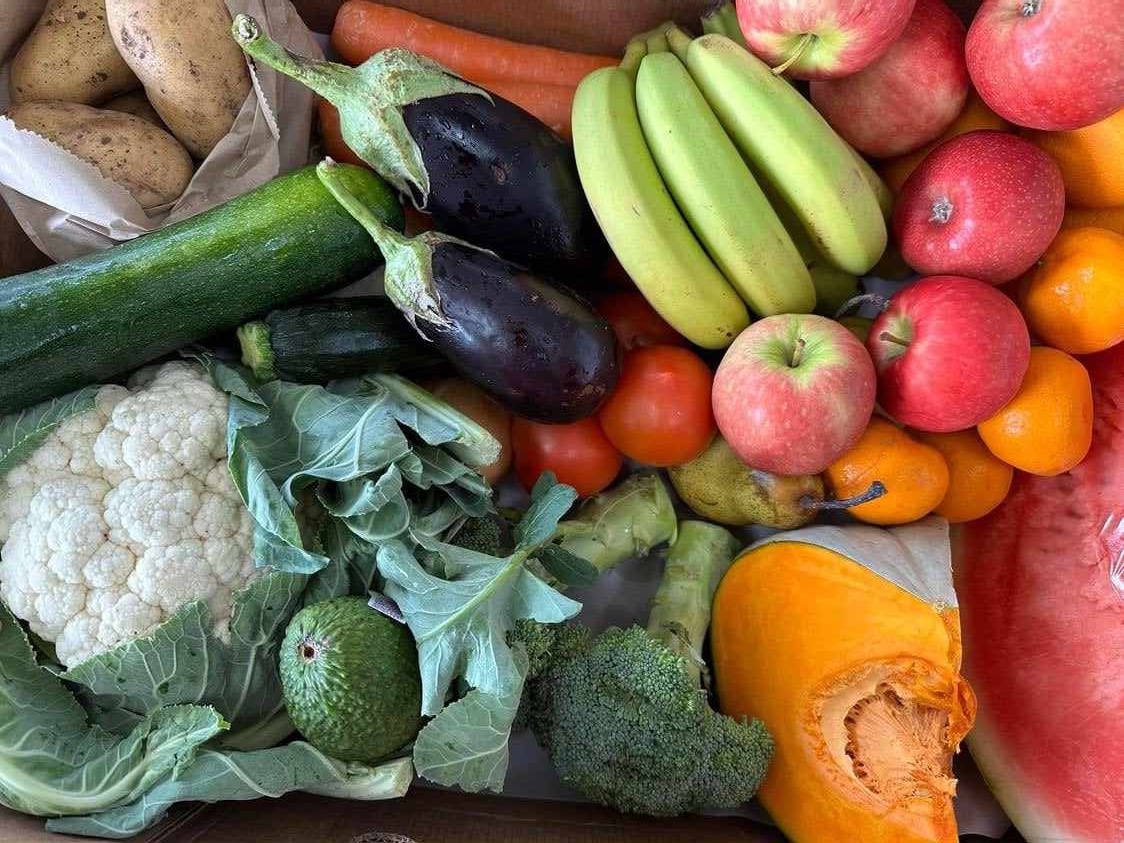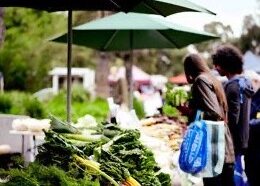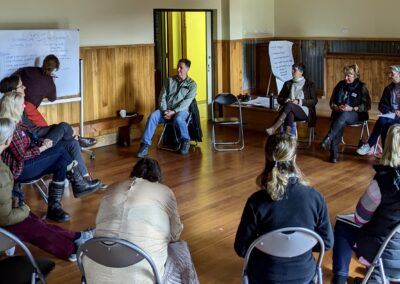Case Study
Bondi Food Collective
Bondi Food Collective (BFC) is a member based, community run food cooperative. BFC is founded on principles of supporting local farmers, increasing the accessibility of organic and spray free produce and encouraging the community to source local food. The group was formed in 2013 by a group of residents involved in the Transitions Bondi group. The group had discussed the idea of starting a community food coop for some time. In 2013 Woolworths applied to open a store in Bondi, raising concerns among the group about the impact this would have on local businesses. The community opposed the advancement of Woolworths into the area, and while they successfully defeated plans for a liquor outlet, a Woolworths store was granted approval. In the face of this disappointing outcome the group asked themselves what they could do to improve the local food landscape, and the Bondi Food Collective was formed.
The first 12 months
The major activities which dominated the founding stages of the collective were recruiting members, finding suppliers and establishing the operations. The first members and customers were 20 residents involved with the Transition movement, who had committed to try the idea for six weeks. Shann, one of the collective’s founders, said that locating suppliers was not too much of a challenge. “Many farmers were eager to get their products into the cities, so were more than willing to work with the BFC” she said. One of the largest challenges that the cooperative faced was in finding a suitable site to operate out of. The location needed to allow for storage of dry goods, ease of access for deliveries and security. The high cost of real estate in the area made hiring a space unrealistic, so the cooperative was lucky to be provided with a space by Chapel By The Sea, a local community initiative.
While this site allowed the BFC to trial their model, it had a number of drawbacks; the lack of storage space or refrigeration, difficulty of access for producers making deliveries and needing to share the space with others. A turning point for the collective came when they found an affordable shed for rent, which gave them an independent site to operate from.
Start-up resources which contributed to success
Shann, a BFC founder, and the current president, emphasises how much assistance the BFC received in its early stages from other cooperatives. This came in the way of advice, sharing administration techniques, sharing supplier lists and also providing moral support and encouragement. In the early stages BFC had reached out to other cooperatives in the area, hosting a barbeque and meet and greet. This provided a valuable opportunity to network with others, opening channels for the sharing of knowledge and experiences. Since this initial barbeque a coop conference has been started in Sydney. Shann’s main piece of advice for others thinking of starting a food cooperative is to reach out to others working in the space. After all, she says, everyone is wanting the same thing so is willing to work together and cooperate.
Another resource which the BFC attributes their early success to was their social media and public relations savvy member, Justin, who’s efforts in promoting the BFC increased the size of the membership base dramatically.
BFC’s Operational Model
Bondi Food Collective fulfils between 10-35 orders each week. Their product range includes fresh fruit and vegetables, meat, fish, nuts, grains, bread and assorted pantry items. One of the BFC’s points of difference from other produce delivery schemes is that customers can select the exact content of their order, rather than choosing from set produce boxes.
Member Ordering
Each Friday afternoon members receive an order sheet from the BFC which lists the products which will be available for the coming week. They have until Sunday evening to return their form. The BFC manager will then collate the orders, and forward the order quantities to suppliers.
Procurement
BFC is supplied by 41 different producers throughout the year. Since the BFC has started, suppliers wanting to distribute their products through the BFC are increasingly making contact. This is an encouraging sign for the BFC who delight in seeing more links forming between producers and eaters.
The majority of the BFC’s key suppliers deliver their orders directly to the BFC shed, which can be accessed independently and without supervision by approved suppliers. Some orders, where the order quantity is too low for the supplier to justify delivery, must be collected by a BFC volunteer. Alternatively, the product will be unavailable until a bulk order can be made. For instance, a single order for walnuts to the nut supplier may not justify free shipping, but an order of walnuts, cashews and pepitas would.
Packing
By Monday afternoon, all supplier orders will have arrived at the Shed and packing of the member orders can commence. Orders are packed by Shann, the manager of BFC, and a couple of members who rotate each week. Orders are packed in order of when they were placed, to ensure a first in best dressed policy.
Shipping and Payment
BFC customers pick up their orders from the BFC packing shed in a 1.5 hour window on Monday evenings. BFC’s two hospitality customers, a local cafe and restaurant have their orders dropped off. The customers also pay upon collection, or via bank transfer. Often, there are differences between the original order they place, and the order that they receive. This can be due to shortages of stock, or the need to substitute products. By paying after the final order has been boxed and delivered, there is no need to refund or collect additional funds in the cases where the order has changed.
Customers
The BFC customers are encouraged to join as members, which requires an annual payment of $45 and the commitment to volunteer occasionally with packing or administration. Non-members may shop through BFC but pay a 60% mark-up, relative to the 30% mark-up enjoyed by members. Bondi’s population is relatively transient, so the BFC membership base experiences a lot of flux.
Member retention is also a challenge for BFC. Joining and shopping through BFC, as opposed to traditional supermarket shopping is a significant lifestyle change for new members. Despite best intentions, some new customers inevitably find the new routine, of placing orders days in advance, and committing to a collect their order in a narrow time slot, difficult to uphold. While BFC accepts that their structure won’t suit everyone, minimising any barriers to participation is always a priority.
The Challenge of Scale
Presently, the major goal for the BFC is to increase the size of their membership base that regularly order each week. This will allow them to offer better prices to their customers, and will also open the potential to offer additional collection points and times, to cater to a wider customer base.

Latest Resources
Can we help?
Have an idea, a project or a question? Want help using the Open Food Network software? Get in touch and find out how we can help you with it.
Keep in touch
Join us
Create a listing, shop or group directory on the Open Food Network. Tell me more!

Read our Terms and conditions | Find us on GitHub
Open Food Network is a free and open source software platform. Our content is licensed with CC BY-SA 3.0 and our code with AGPL 3.
We take good care of your data. See our cookies policy




